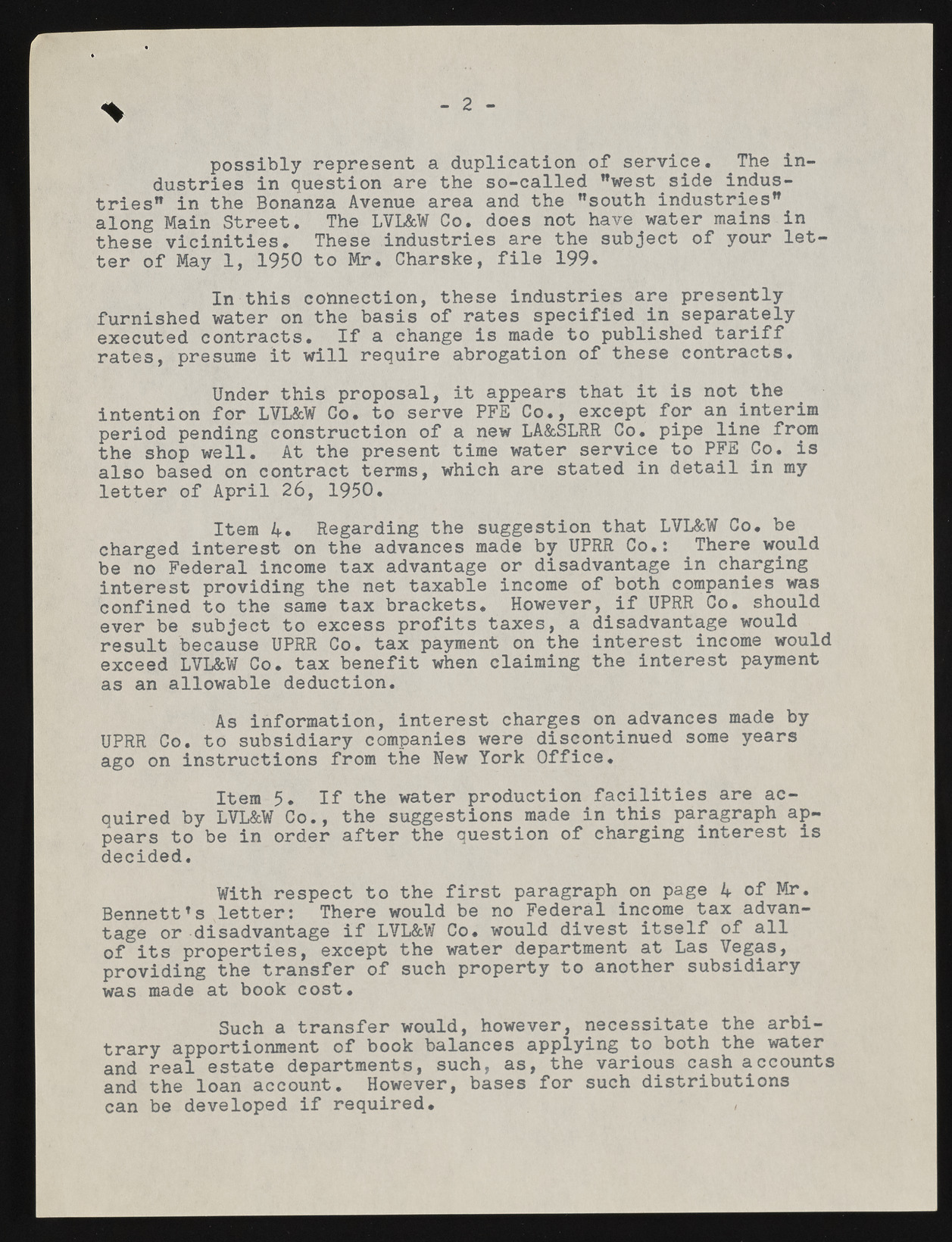Copyright & Fair-use Agreement
UNLV Special Collections provides copies of materials to facilitate private study, scholarship, or research. Material not in the public domain may be used according to fair use of copyrighted materials as defined by copyright law. Please cite us.
Please note that UNLV may not own the copyright to these materials and cannot provide permission to publish or distribute materials when UNLV is not the copyright holder. The user is solely responsible for determining the copyright status of materials and obtaining permission to use material from the copyright holder and for determining whether any permissions relating to any other rights are necessary for the intended use, and for obtaining all required permissions beyond that allowed by fair use.
Read more about our reproduction and use policy.
I agree.Information
Digital ID
Permalink
Details
Member of
More Info
Rights
Digital Provenance
Publisher
Transcription
2 % possibly represent a duplication of service. The industries in question are the so-called "west side industries" in the Bonanza Avenue area and the "south industries" along Main Street. The LVL&W Co. does not have water mains in these vicinities. These industries are the subject of your letter of May 1, 1950 to Mr. Charske, file 199. In this connection, these industries are presently furnished water on the basis of rates specified in separately executed contracts. If a change is made to published tariff rates, presume it will require abrogation of these contracts. Under this proposal, it appears that it is not the intention for LVL&W Co. to serve PFE Co., except for an interim period pending construction of a new LA&SLRR Co. pipe line from the shop well. At the present time water service to PFE Co. is also based on contract terms, which are stated in detail in my letter of April 26, 1950. Item 4. Regarding the suggestion that LVL&W Co. be charged interest on the advances made by UPRR Co.: There would be no Federal income tax advantage or disadvantage in charging interest providing the net taxable income of both companies was confined to the same tax brackets. However, if UPRR Co. should ever be subject to excess profits taxes, a disadvantage would result because UPRR Co. tax payment on the interest income would exceed LVL&W Co. tax benefit when claiming the interest payment as an allowable deduction. As information, interest charges on advances made by UPRR Co. to subsidiary companies were discontinued some years ago on instructions from the New York Office. Item 5. If the water production facilities are acquired by LVL&W Co., the suggestions made in this paragraph appears to be in order after the question of charging interest is decided. With respect to the first paragraph on page 4 of Mr. Bennett’s letter: There would be no Federal income tax advantage or disadvantage if LVL&W Co. would divest itself of all of its properties, except the water department at Las Vegas, providing the transfer of such property to another subsidiary was made at book cost. Such a transfer would, however, necessitate the arbitrary apportionment of book balances applying to both the water and real estate departments, such, as, the various cash accounts and the loan account. However, bases for such distributions can be developed if required. ,

